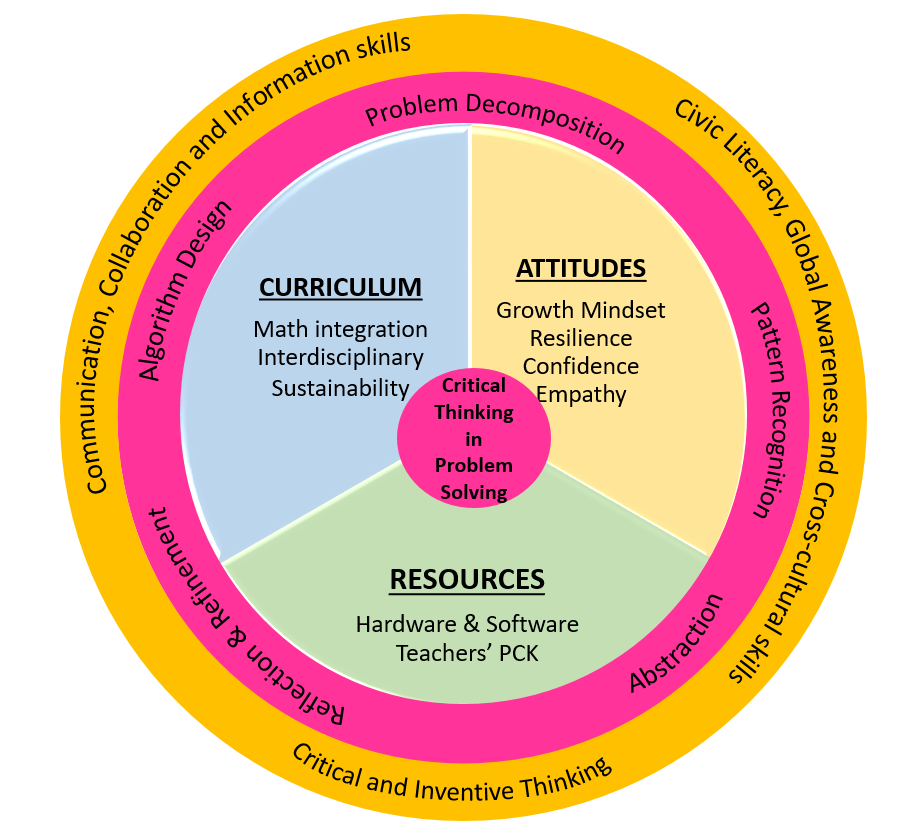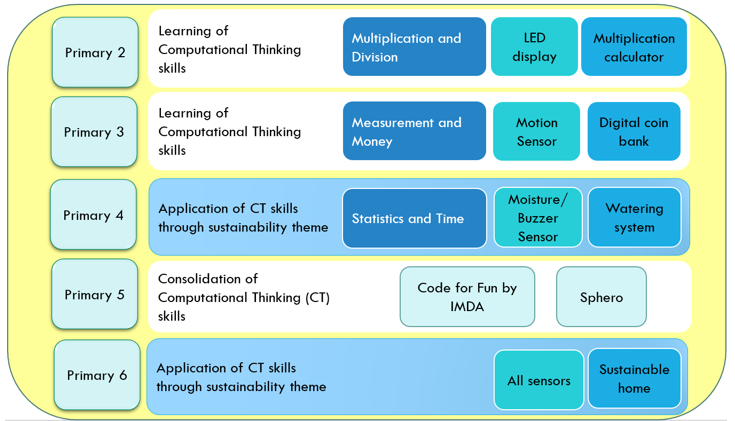Applied Learning Programme
Applied Learning Programme
Computational Thinking In Mathematics
Computational Thinking In Mathematics - Horizon Primary School’s Applied Learning Programme
Learning mathematics is a key fundamental in every education system that aims to prepare its citizens for a productive life in the 21st century. As a nation, the development of a highly-skilled and well-educated manpower is critical to support an innovation- and technology-driven economy. At Horizon Primary School, Computational Thinking in Mathematics enables students to develop computational thinking skills, acquire collaborative skills and dispositions such as confidence and resilience through age-appropriate coding lessons. These are important 21st century competencies that we want students to develop during their primary school years.

Computational Thinking In Mathematics Framework
The Computational Thinking in Mathematics framework sets the direction for the development of computational thinking pedagogy and curriculum. The ‘heart’ of the Computational Thinking in Mathematics is to enable students to become critical thinkers who are effective and efficient problem-solvers. The three inter-related components of the framework are curriculum, attitudes and resources. Encompassing these components are computational thinking skills and 21st century competencies that we must imbue in our students, so that they will become engaged, life-long learners who are future ready.

Computational Thinking In Mathematics Curriculum
The Computational Thinking in Mathematics curriculum integrates and aligns coding and protyping activities to the Mathematics curriculum to help students reinforce Mathematical-thinking skills through computational thinking processes. At the end of each year, students would have learned to code a microprocessor called Micro:bit using a web-based software, Makecode.org. Purposeful age-appropriate opportunities are provided for real-life application of learning. This allows students to make meaningful connections across various disciplines.

Most importantly, through the learning experiences of Computational Thinking in Mathematics, students become more confident and show greater resilience in persisting to solve Mathematical and task-based problems. They embrace a growth mindset, “Try Fail Try” to code and prototype the product.

